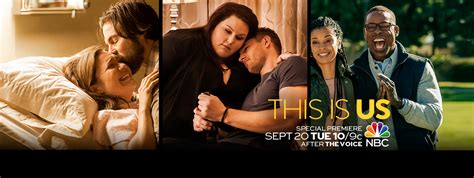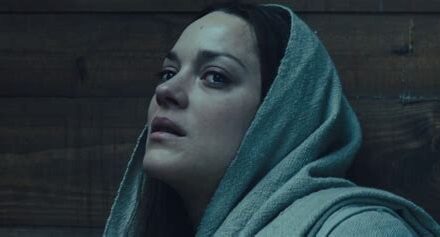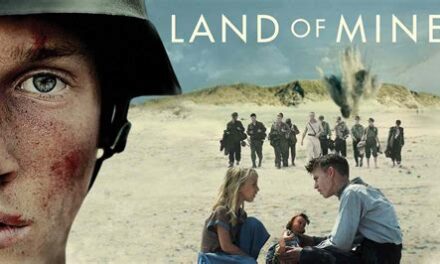Us, which premiered on PBS a week ago is not for everyone. In the first place, it is adult—but not in the thoroughly adolescent sense the word is so often misused (i.e, for pornographic movies). Second, it is slow, being largely driven by dialogue, which means viewers have to pay careful attention more to what’s being said than what’s going on—or, rather, one has to listen in order to know what’s going on.
It begins with a couple—a married couple, Douglas and Connie Petersen—in bed around dawn when Connie (Saskia Reeves) announces that their twenty-four-year-old marriage is over. It’s an old story: in some ways, Scenes From a Marriage and Kramer vs. Kramer revolved around the same dramatic premise. But instead of a cinematic unhappy wife declaring she has given everything for nothing in return, Connie simply feels the marriage has exhausted its possibilities. Douglas (Tom Hollander) has been a good enough husband, and she’s been a good wife. They have a son Albie (Tom Taylor) who is also good (by the low-bar standards of modern family life). In any case, when Douglas quizzes her for reasons, she points chiefly to the fact that they don’t talk, or, more precisely, don’t converse. The marriage has simply become an empty exercise, and she wants time to herself—permanently.
The odd thing is, she insists that the three of them should take their already-planned vacation, three weeks in Europe: Paris, Amsterdam, Venice, Rome, among other places. At first, Douglas balks, but as Connie heads to work, he changes his mind. Maybe the car leaving the house was too much a preview of things to come; anyhow, he chases her down the street and proposes they give the vacation a whirl. And, of course, that’s just what they do.
Many people like happy endings; they also expect the action to move steadily and, alas, predictably toward the desired conclusion with, in the case of Us, a re-kindling of the marital fires as the vacation progresses. Episode one is all PBS has aired so far, but (spoiler alert!) the story isn’t plotted quite that way. For one thing, Douglas and Connie are two almost hopelessly different people; moreover, as we see, the differences were manifest from the start. A series of flashbacks, nearly seamlessly worked into the present-day scenes, present the young couple when they meet and head toward marriage. Incompatible is hardly the word. Young Connie (Gina Bramhill) is an aspiring artist, surrounded by an artsy crowd, and Young Douglas (Iain de Caestecker) is a biochemist, a classic straight-arrow type (aside from the fact that he has no trouble jumping in bed with her the first night they meet). One thing leads to another, and a few months later, he walks his not-so-blushing and obviously pregnant bride down the aisle. The baby, as she tells the guests, is a girl—one that they lost later although episode one doesn’t say how.
Twenty-four years is bound to change people subtly, often drastically, and the older Douglas is not necessarily a better man. The seeds of the boring micromanager evident in his youth have germinated, producing what else: a boring micromanager, which is poison to any vacation. Movie buffs may recall William Daniel’s portrayal of Howard Manchester in Two For the Road, but toxic as Howard was, he could have learned a thing or two from Douglas, an absolute master of pleasure-destroying information. He wears two watches, one of which tells him how far he has traveled, how long, even to the point of timing when their train will emerge from the Channel Tunnel. He counts his steps. What else does he count? Mistakes made by others? One can believe it. As a result, his inner wish that the vacation will re-kindle the dying embers of Connie’s love seems futile from the start, and the question arises: Can he change?
As for Connie, it’s more difficult to assign fault, but her sympathy for her son Albie, perhaps fitting, makes her a poor mediator between him and his father. Like her, Albie, at seventeen, is an aspiring artist with hopes of entering art school the next year. He hauls his guitar along to the hotels, announces that he will do some busking whenever he feels the urge, meets an oriental girl, Kat (Thaddea Graham), whom he noisily beds next door to his parent’s room—and that on their first day in Paris. Douglas and Connie accept this with a shrug, but at the morning hotel buffet when Kat—hardly a paying guest—starts pocketing food for lunch and, for all we can tell, dinner, Douglas gets upset. Yet to Connie, Albie, and, no doubt, to Kat, everything’s okay.
Later, in Amsterdam, Kat reappears and once again manages to get a free meal. But at this luncheon, a waitress accidentally spills her tray on a customer who upbraids her mercilessly. He may be an ass, but it’s plainly nobody’s business but his and the management’s. But Kat, seething with righteous indignation, rushes into the breach, followed by Albie. Douglas, then, intervenes to apologize for his son. He is right, but, as you may imagine, this does little to bring the family closer together.
You can guess where Connie stands. She berates Douglas for embarrassing their son and declares that their slim chances for reconciliation are gone. She’s for home, and she means it. As for Douglas, once he finds Albie has gone more or less in the opposite direction, meaning Venice, he heads there, convinced that his son will go to the hotel he has booked. And that’s where episode one ends.
As I say, Us is slow but absorbing for the shrinking audience that likes that sort of thing. Clearly, it has its flaws: a casual amorality regarding the young (sex and drugs) and a casual attitude toward irresponsible parenting. There are a few holes in the plot too. How on earth did Albie, a minor, worm his way into the hotel room in Venice booked by his father? And is Douglas perhaps a bit too much of the micromanager for belief? But, objections aside, Us is what it is, a picture of a modern family struggling rather blindly to remain a family and become a better one. Surely, it’s a good picture of them and good TV, but I hope to God—Father, Son, and Holy Ghost—that it’s not really the rest of us.














